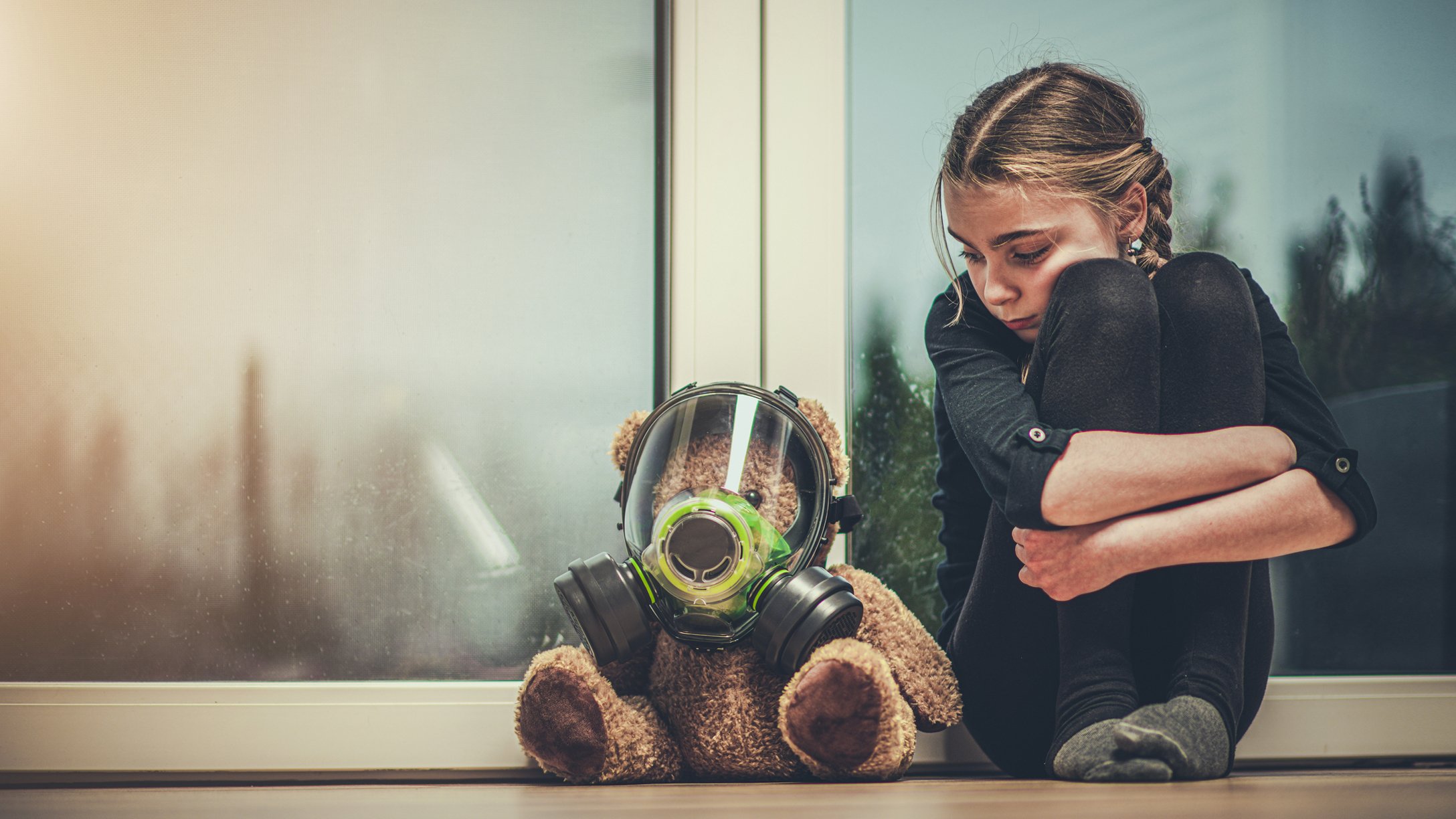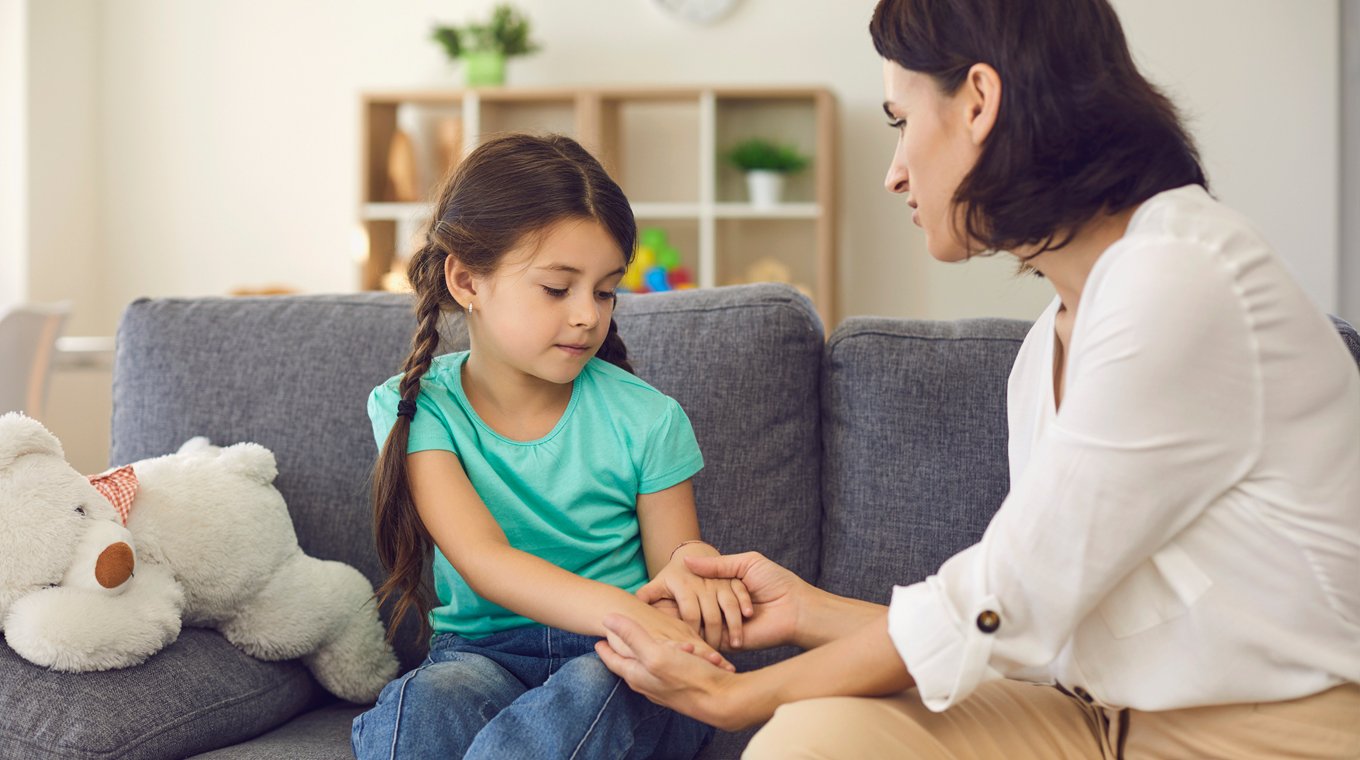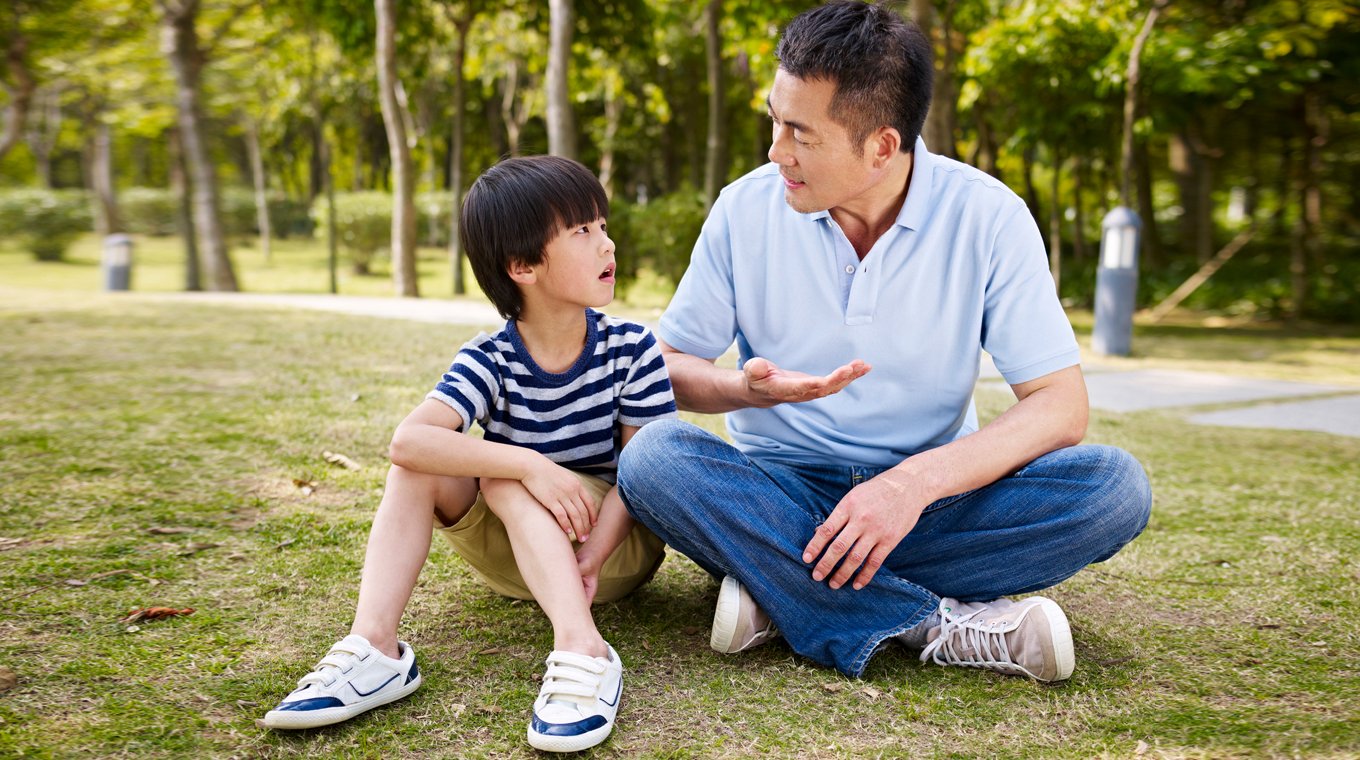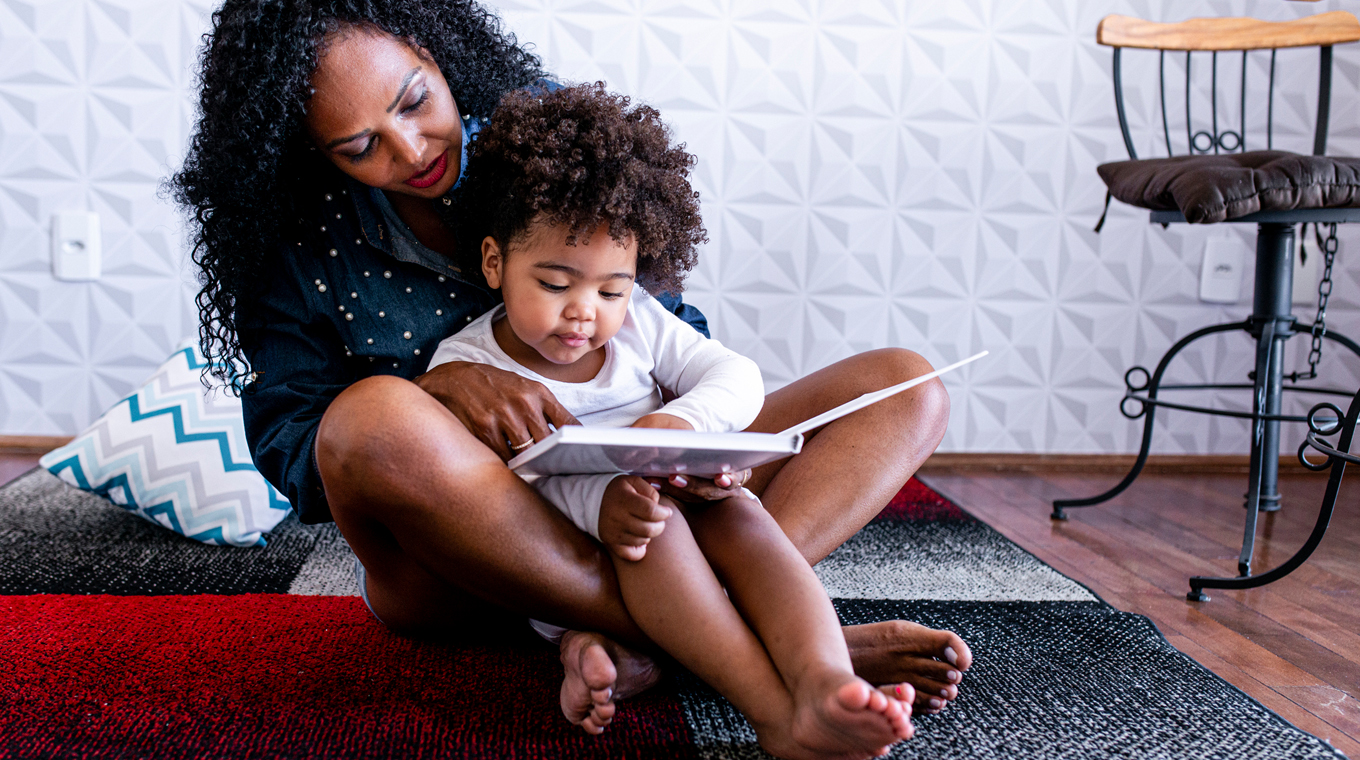
In this article
When international conflicts such as Russia invading the Ukraine hit the news, not only are you possibly overwhelmed, but you might be wondering what to tell the kids. Should you bring it up? If you think it's important to explain war to your children, how should you go about it? If you’re in need of some assistance, here are some ideas on how to talk about war with your children.
How to talk about war without causing anxiety

As a parent, there are many times we may wish we could just stick our heads in the sand and magically handwave all the tough conversations away. Unfortunately, if our kids aren’t hearing directly from us about war (or any other topic), they’re hearing about it from other sources like their peers, teachers, other adults, and social media.
“Be the source of the information for your children, so they can learn what this means for your family,” Marcie Beigel, Ed.D., BCBA-D, told Mom.com. “You want to tell them the truth in clear, concise language. You want to share facts.”
Find out what your kids know
Start off by asking what your child knows about a situation and where they got their information. You may be surprised at how informed they are! (Also, don’t forget to ask how they feel about what they know.)
Share age-appropriate information
Dr. Beigel advises remaining calm, because your tone will impact your kids’ response. “For younger children, you can share more general facts, like which countries are at war and why they are fighting. For older children, you will need to share more details about the current situation, like what people are experiencing and how events are unfolding,” she said.
Because the students of Los Angeles kindergarten teacher Sylvia Garcia are five years old, she doesn’t elaborate on the details of war. “I tied it into what we learn: being kind, using words to solve problems, and standing beside someone if they are being bullied,” Garcia told us. “They can relate to that without the gory detail that is war.”
Explain how the world is responding
A lot of times, children get scared because they don’t know what it means for them. Share what actions various countries are taking, how humanitarian groups are helping, and what they can do to help as well.
“This includes what we as a country are doing, as well as what you as a family are doing,” said Dr. Beigel. “If people you love are directly in the impacted areas, you let your children know what may be unfolding for you/them.”
Ask if they have questions
If they do have questions, keep your answers concise and simple if your children are on the younger end. If they are older, you can have more in-depth conversations. Look up the answers together if you are not confident in your answer.
Remind your children that they can always come to you as questions come up and that it’s an ongoing conversation.
How to explain war, and what to do if your kids are scared

Of course, no matter how careful you are, your child may still feel scared — especially if you have family in the military or affected areas.
“Talking about war is not about painting a pretty picture so that your children feel good at the end of the conversation. They may feel scared or have anxiety because those are appropriate feelings to have when talking about war,” said Garcia. “You want to make sure you are giving them tools to navigate the big emotions they may experience.”
Here are some ways you can help your child if they are feeling afraid.
Let children know that they are safe
One way to help your kids know they are safe is by sharing how the war may directly impact their life.
“If they are still sleeping in a warm, safe bed, far from direct impact, remind them of this. If they are going to their usual school and afterschool activities, remind them of this,” said Dr. Beigel. “In these situations, they need to be reminded that they are safe and all is well for them.”
Resources: Books about war, and how your child can feel more in control

You know your children best, so make sure you’re keeping an eye on their distress levels. If your child is struggling or needs outside help, ask for help. It can be as simple as watching a parenting webinar on how to talk to kids about war or reaching out to mental health professionals specializing in children.
Books about war, or about dealing with the hardships of war, can add to your discussions:
-
A helpful e-book called A Kids Book About War by Sarah Jones is available for free and in multiple formats.
-
In his autobiographical book, The Wall: Growing Up Behind the Iron Curtain, author Peter Sis talks about growing up under Communist rule and how he found salvation, hope, and joy through art and music.
-
The story of a young refugee named Niko is at the center of The Silver Path by Christine Harris. Told through a series of letters to his penpal, Niko talks about fleeing his village with his mother during an unnamed conflict. While the realities of war are intense, a book like this can also spark empathy for children in other parts of the world who are living through adversity.
Suggest ways to help
One way to help combat anxiety is to suggest ways your child can act and take back some small measure of control.
“I tell my boys that what we can do to help is to find a charity group we can donate to to help the Ukrainian families who are now displaced refugees,” Nancy Hu Lu told Mom.com. “I asked my boys what would be their concern if they are refugees, and we decided to donate to the Airbnb foundation so that we can support Airbnb hosts opening up homes to host refugee families.”




